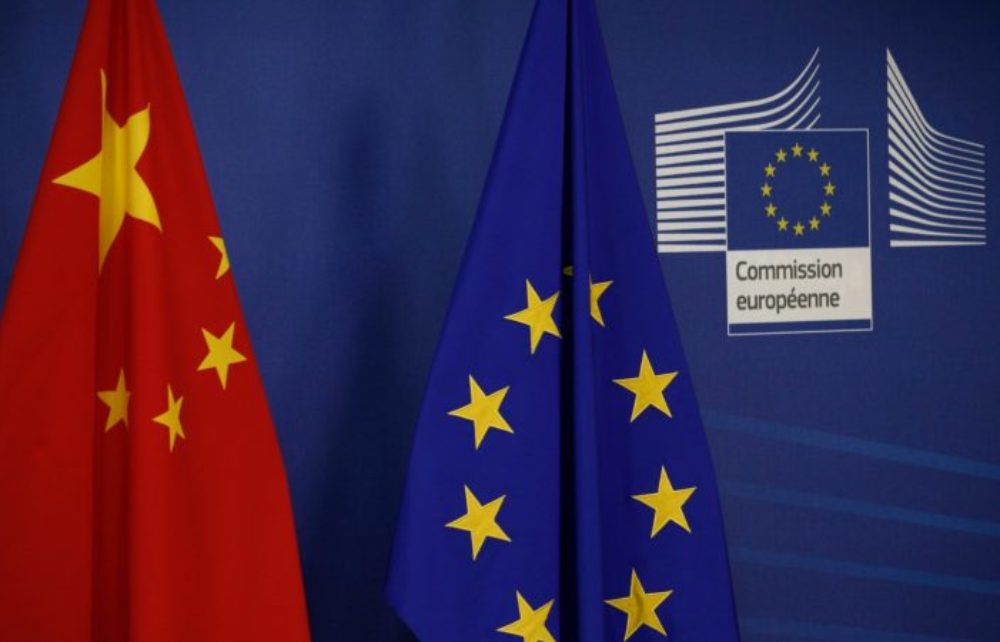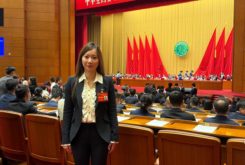*Joana Barros Silva
The relationship between the European Union and the People’s Republic of China brings together two quite unique partners. They are two of the largest economies in the world and, although they are actors with very different profiles and policy structures, they are extremely important economic partners to each other.
Since the beginning of the establishment of diplomatic relations, in 1975, this relationship has evolved positively and, especially after China joining the World Trade Organization in 2001, with a significant deepening of economic ties.
In fact, this event generated many hopes in the European Union. European expectations were closely related to greater economic openness on the part of China, in particular regarding the opening of the Chinese market to foreign investors and companies. This is a relevant milestone for the dynamics of the EU-China relations, as the economic and commercial aspects were always the main driver and main factor in the development of this relation.
So, on a very optimistic basis, in 2003 the European Union recognized China as a strategic partner and the same happened in reverse a few months later. The period between 2000 and 2004 was, in fact, a very positive phase of this relation, which some academics even call the “honeymoon phase”.
In the following years, between 2005 and 2008, the relationship went through a cooling phase, during which the actors debated and diverged because of themes such as the embargo of EU arms to China, which had been going on since 1989, the trade deficit, the Market Economy Statute for China and human rights issues. However, even during this cooler period of the relation, economic ties continued to tighten.
This period culminates in the financial crisis of 2008 and the respective euro crisis, generating a large opportunity for Chinese investment in EU countries.
Indeed, direct investment from China into the EU has increased sharply since 2008, and since 2013 in particular, reaching a peak in 2016, with values in the order of 35.9 billion euros. In addition to this investment opportunity, the financial crisis also showed how interdependence between economies could jeopardize the objectives of Chinese economic stability and prosperity. It is also in this context that more skeptical and critical positions emerge in the EU, with greater density, in relation to China and its impact on the European economy.
In the absence of a clear and cohesive EU’s strategy on its relationship with China, the urgency of post-crisis economic recovery has prevailed and the economic issues continued to prevail over geopolitical priorities and Brussels’ lack of cohesion vis-à-vis Beijing persisted.
Beijing’s creation of the 16+1 cooperation mechanism, meanwhile, extended to 17+1 (which includes some EU Member States), and accentuated this divisive dynamic, as it limited the negotiation capacity of Brussels with those countries.
The initiative of the New Silk Road, in 2013, relaunched the economic ties, offering great investment opportunities. In fact, from this point onwards, Chinese FDI grew significantly, as mentioned before, until it reached a peak in 2016.
This increase in Chinese investment, especially in strategic industries and critical infrastructure, such as the acquisition of the German robotics company Kuka, raised concerns again within the EU regarding the possibility of Beijing gaining control over critical sectors of the European economy. However, even with some alarm bells ringing in Brussels, economic aspects continued to outweigh the political and strategic concerns that, at this stage, fueled the European debate.
As China’s assertiveness abroad increases (particularly after 2013, with Xi Jinping’s rise to power), skepticism of the European Union (albeit in different measures from country to country, in an EU still fragmented in terms of its position vis-à-vis China) appears to be growing also.
After 2017, China’s foreign policy becomes less discreet and more assertive. At the same time, European doubts and fears seem to be gaining ground, conditioning the European position towards China, and the paradigm of the EU-China relation began, in fact, to change at this time. Even with the recognition of Beijing’s strategic relevance to Brussels, there is a growing perception in Europe that the balance of challenges and opportunities presented by China has changed.
Currently, the EU identifies China as “an economic competitor in the pursuit of technological leadership and a systemic rival promoting alternative models of governance”, and so, in 2020, due to the new geopolitical environment that Brussels is forced to equate, the EU starts to view its relationship with China under different angles and perspectives, becoming a partner that is, at the same time, a rival.
The conclusion of the Comprehensive Investment Agreement negotiations in December 2020, after 7 years of dialogue and debate, generated some expectations that quickly became extinct with the freezing of the procedure by the European Parliament, following disagreements with the Beijing government on human rights issues, in Hong Kong and Xinjiang.
This episode, among others, illustrates the difficult moment in time in which the European Union and China currently meet. However, this is not the first moment of tension that the relationship has faced and economic ties remain extremely relevant for both.
In short, about two decades after having established the strategic partnership, EU and China present themselves nowadays more assertive, finding themselves under increasing pressure to balance economic issues, which are still very significant in terms of their relationship, and geopolitics priorities that have been gaining more and more shape and context.




